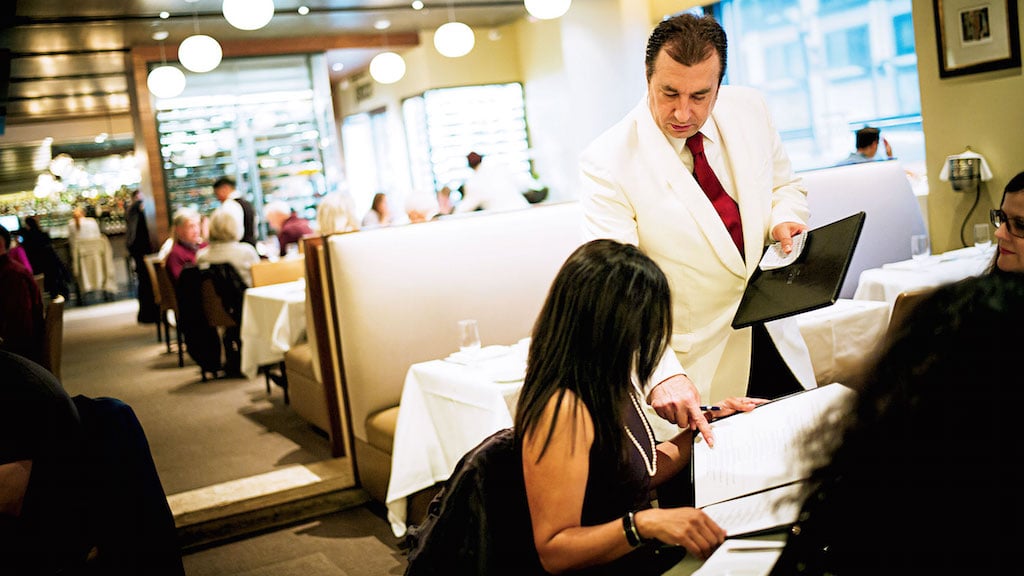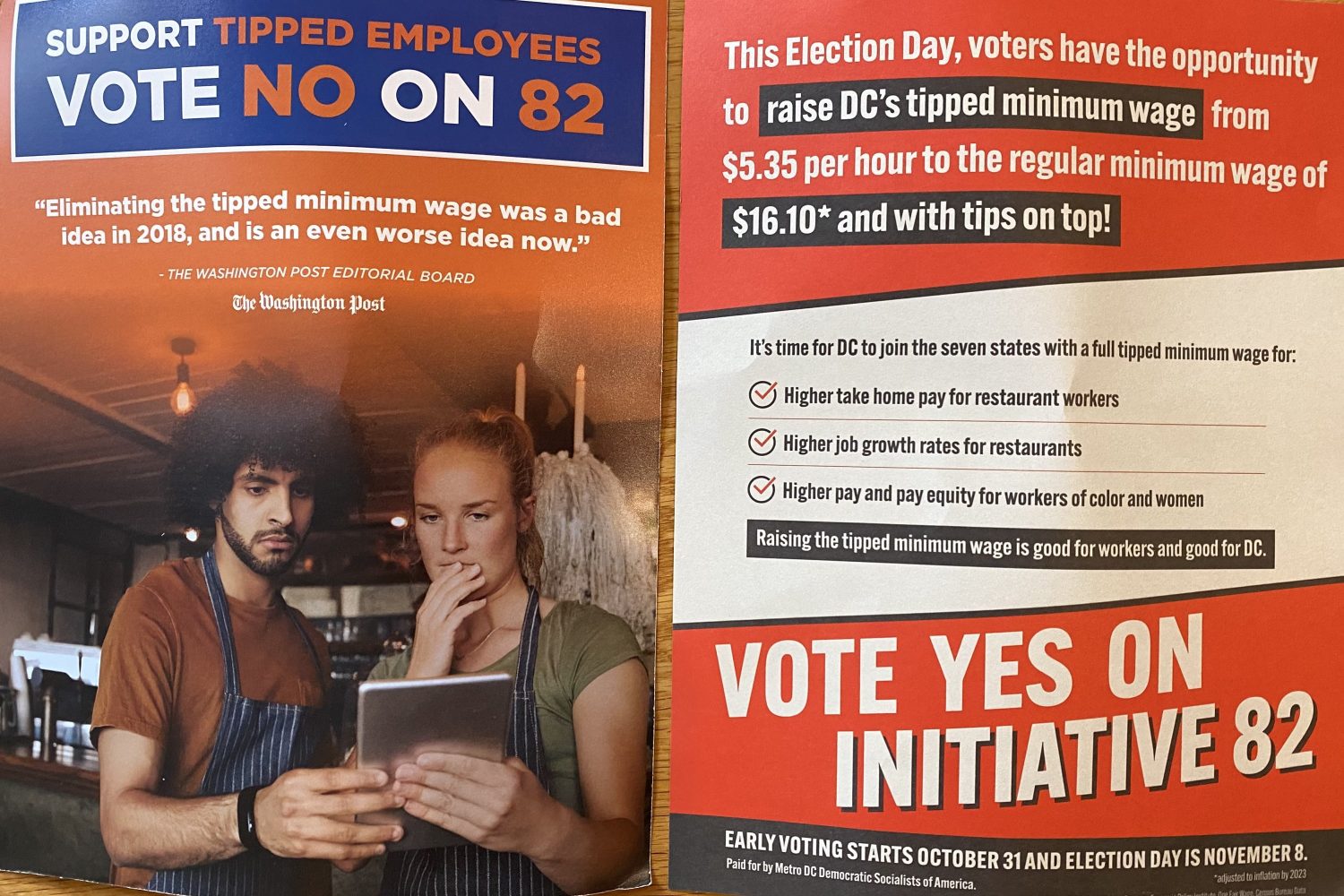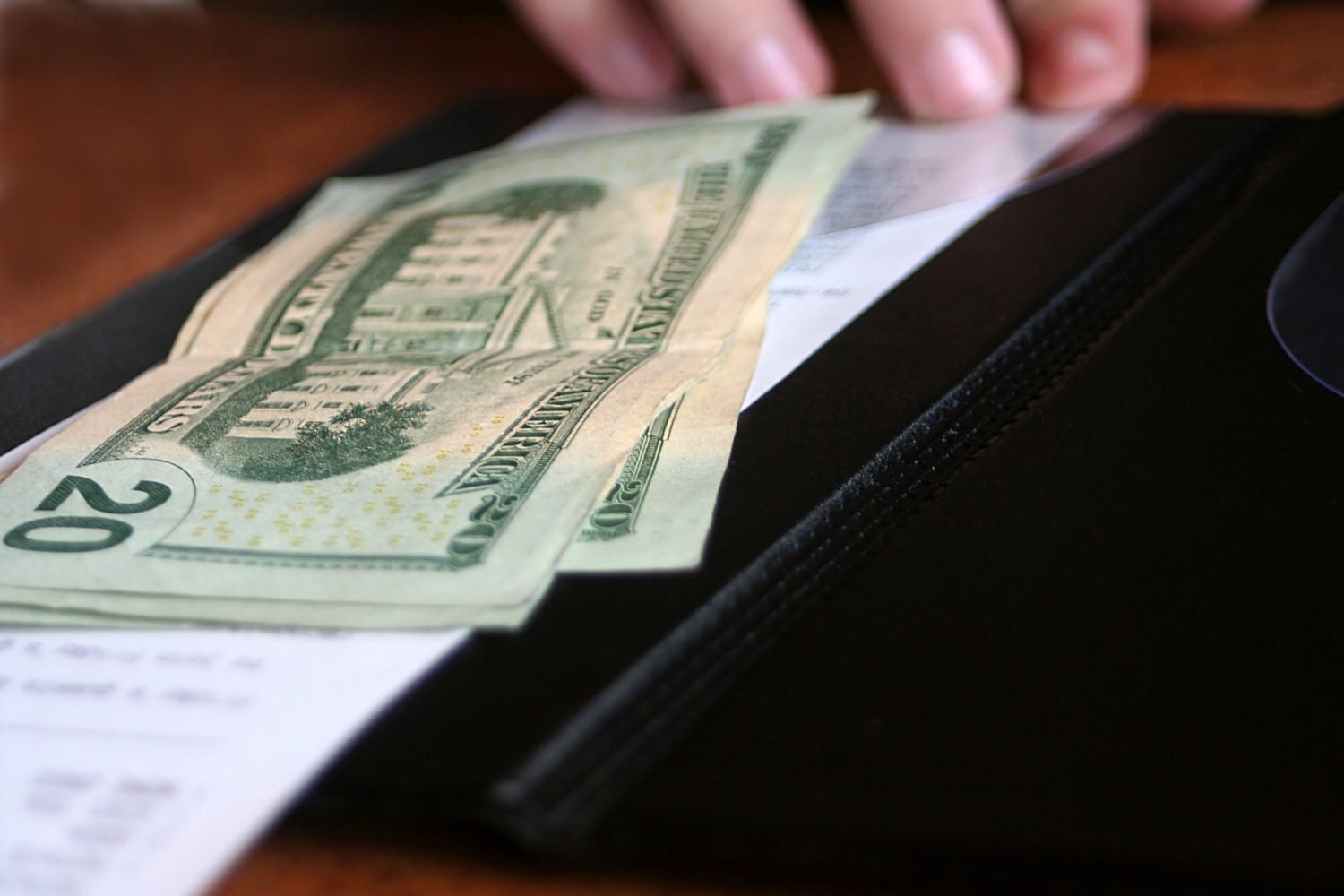It started with the customer touching her wrist, the small of her back. Server Abby Dunn indulged him at first. She laughed when the regular, who was having dinner with some colleagues, joked about wanting to take her out on a date. It was a slow weeknight at the DC Italian restaurant she worked at two years ago. She knew she wasn’t going to get many tables that evening, and she needed the money. But the man got progressively drunker as the night wore on. Then, as Dunn was opening a new bottle of wine, she felt his hand trace up the back of her leg and grab her butt. His cohorts saw it, she recalls, and said nothing.
“It was just me feeling humiliated and knowing that I still needed the money,” says Dunn, who’s since left that restaurant and now works at the Fainting Goat. “And also given my personal history with sexual violence, I didn’t feel comfortable sticking up for myself, because that has never gone well in the past.”
Dunn is now a supporter of Initiative 77, a DC ballot initiative that, she believes, would make servers like her less dependent on tips and more empowered to stand up against harassment. The initiative, up for vote on June 19, would gradually create one flat wage of $15 an hour for all types of workers. Currently, the minimum wage in DC is $12.50 an hour (set to raise to $15 by 2020), but servers, bartenders, and other tipped employees earn $3.33 an hour then make up the majority of their pay from customers’ gratuities. Employers are legally required to pay the difference if the tips don’t reach minimum wage.
If the initiative passes, opponents of 77 see a future where restaurants are forced to close, cut staff and hours, raise menu prices, and potentially eliminate tipping altogether in favor of a service charge that they’re not legally required to share with employees. Meanwhile, supporters of 77 have hailed the initiative as an opportunity for workers to earn predictable paychecks without being dependent on the generosity of strangers. Buoyed by the #MeToo movement, they’ve also made the fight against sexual harassment a central part of their campaign. But while both sides agree sexual harassment is a real problem in the restaurant industry, they diverge on whether Initiative 77 would actually do anything to curb it.
Restaurant Opportunities Centers United Workers, a national advocacy organization that pushed to get the initiative on the DC ballot, touts that workers are twice as likely to experience sexual harassment in states with a two-tiered wage system than they are in areas with a universal wage. The group also claims that 92 percent of restaurant workers in DC report sexually harassing behavior at work—a stat the opposing camp objects to because it’s based on surveys of only 51 tipped workers in DC, a tiny fraction of the community.
Caitlin Schiavoni, an anti-77 bartender at Pizzeria Paradiso in Georgetown, also argues that ROC United and its supporters are trying to have it both ways. The organization says tipping is fueling sexual harassment, yet it also claims it’s not against tipping and that workers will keep their tips if the initiative passes.
Like many other opponents of Initiative 77, Schiavoni believes customers who behave badly are going to do so regardless. “I can’t speak for everyone, but I don’t know anyone who would put up with that for a tip,” she says.
She recalls just two times that she’s dealt with harassment in the year and a half she’s been at Pizzeria Paradiso—one where a guy made comments about her looks, and another where someone grabbed her arm. Both times, she asked the customers to leave the bar.
“I think that we should focus on going after those people instead of trying to change the entire business model for everyone, which won’t even have an impact on [sexual harassment],” Schiavoni says.
Schiavoni says that ROC United using sexual harassment as a talking point in this debate is “pretty messed up” and trivializes a societal issue. Still, the rallying cry of the #MeToo movement has helped to get celebrities like Sarah Jessica Parker and Kerry Washington to support “one fair wage.”
“A lot of celebrities don’t want to be seen going against what is a great movement,” Schiavoni says. “I’m in full support of the #MeToo movement. I’m part of it. But I definitely think that they’re using it more to their advantage now. It’s not right to me.”
On the flip side, Erin Hawkins, a server and bartender for Toki Underground, says that opponents of Initiative 77, who are often in privileged positions, have been too quick to dismiss a connection between the tipped minimum wage and harassment. She acknowledges getting rid of the two-tiered wage system isn’t going to all of a sudden solve the problem, but it is a small step to changing the culture. For at least some women, it might be the difference in laughing at an inappropriate joke or calling it out, staying silent about a handsy guest or reporting it to management.
At a dive bar where she used to work, Hawkins says one time customer asked her to look at the receipt when she went to grab the check from a table. “He had drawn my breasts, and he’d drawn himself basically banging my breasts,” she says. He left her a bigger than average tip, too.
“People just think that they can do whatever because they’re paying for you, and they know that they’re paying for you to survive. We only make $3.33,” she says. Plus, she adds, “it does open up women to be harassed and feel like it’s OK because you’re getting money at the end of it.”
Annie Rigelhaupt, a bartender for Clyde’s Restaurant Group, also says she’s more likely to let inappropriate comments slide under the current pay system. “I feel like I find myself pretending to be dumber than I am,” she says.
The 20-year veteran of the restaurant industry previously worked in California, where there is no sub-minimum wage. In the San Francisco area, her paychecks had only a couple hundred dollars more coming directly from her employer (as opposed to tips), but she says that was enough to make a difference in her mentality.
“I feel like we had a little more leeway for sticking up for ourselves,” she says. “When my entire income was coming from tips, you really have to be very particular and calculating in how you earn that. And a lot of times, that ends up being putting up with a lot more inappropriateness than you would otherwise.”
Schiavoni from Pizzeria Paradiso takes issue with the argument that tipped workers are dependent on gratuities to make their base wage, because technically businesses are responsible for paying the gap if employees fall short. “Even if we got no tips, we would still get the base minimum wage,” she points out.
Of course, that depends on employers following through on their obligations. Supporters of 77 say tipped workers shortchanged on the minimum wage often aren’t compensated correctly and feel intimidated, or don’t know how, to assert their rights. These typically aren’t the servers and bartenders who work at the popular, name-brand restaurants, but already marginalized workers in less busy establishments—often women or people of color.
Initiative 77 opponents don’t dismiss these wage theft concerns. But they say enforcement is an issue that needs to be addressed separately, since the law already makes it clear that employers must make sure employees get the full minimum wage one way or another.
Nicoletta Barraza, an anti-77 server at downtown sports bar Proper 21, says whether women are forced to deal with sexual harassment has a lot more to do with management than the customers. Her current employer, for example, has zero tolerance for bad behavior and will kick someone out or otherwise address anyone who oversteps the bounds. That’s empowered her to speak up when something is wrong. But she’s also worked at a DC diner and bar where that was not the case.
Barraza says she was raped by two regular customers—who worked at a restaurant down the street and frequented her former workplace after their shifts—when she ended up at a party with them one night. She says she told some of her colleagues, who told the management, but her superiors didn’t take her pleas not to let the men back in the establishment seriously.
“They would come in here and talk to the managers and say, ‘Oh, I wonder does she remember our night together,’ all these different things. And they were still allowed to be in there and come up and hug me,” Barraza says. “There wasn’t any tipping relationship between us, and there wasn’t me scrounging for money that allowed it. The restaurant managers allowed that.”
Barraza, who was 20 at the time, says she never reported the incident to police. “I was too scared that everyone knew them, that it would be my word against everyone else’s,” she says.
Barraza was able to leave and find a new job in large part, she says, because so many restaurants and bars were (and are still) hiring. But with the job loss that she expects to occur if Initiative 77 passes, she fears that women won’t have as much mobility to leave a toxic workplace.
At the same time, not everyone believes bad management exists in a separate bubble from the tipped wage issue. In a 2014 survey of 688 current and former restaurant workers across 39 states, ROC United found that female tipped workers in states with a $2.13 pre-tip wage were three times more likely to be told by management to “be more sexy,” including wearing tighter clothes or makeup. The survey respondents in those states were also more likely to report being instructed to flirt with customers.
Lauren McGrath, a bartender at DC-9, takes issue with some the language used by ROC United, which she describes as “sex negative.” While no one should be forced, she says that bartenders and serves should be free to express a certain level of “sexy” without being told they’re selling their bodies.
“I tend to wear tight fitting clothes or really short shorts and I feel really safe at DC-9 doing that because I know if anyone were to mess with me or make a comment, I can come right back at them and shut that down,” she says.
McGrath says she’s also had non-tipped job as a door-person where she made $15 an hour. She put up with more sexual harassment there than she ever has as a tipped employee. Her workplace, it turns out, is one of the places where she is least concerned with harassment.
“I feel safer behind the bar among tons of drunk dudes than I do walking the two blocks from the Metro stop to get to work.”


















